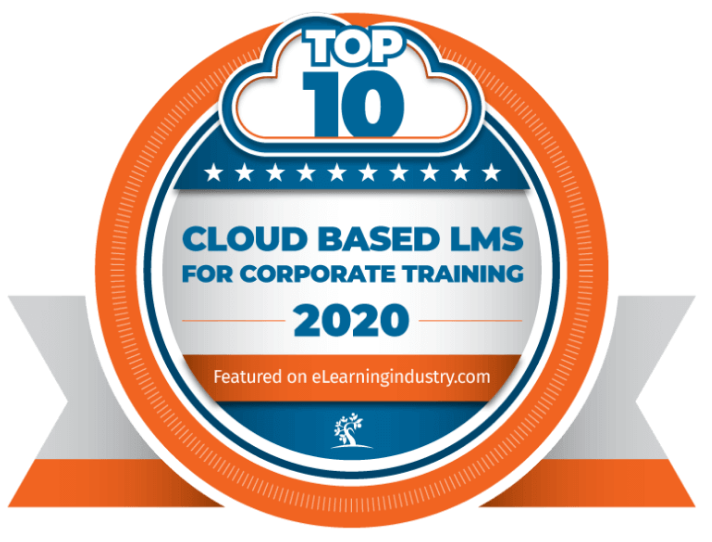August 26, 2025
How to Choose the Right Learning Management Software

Choosing a learning management system shouldn’t be as hard as planning a rocket launch to cross the street. You don’t need every shiny feature; you need a platform that improves business metrics, integrates with your existing training stack, and doesn’t require your admins to work late nights. This blog will help you choose a learning management software you’ll still be confident about months from now.
Start with Outcomes, Not Demos
Before vendor meetings, write down three truths: who’s learning, what must change, and how you’ll measure it. Examples: reduce onboarding time by 30%, hit 100% compliance on time, improve sales readiness scores, or slash admin hours per course launch. Metrics such as time-to-competency, completion rates, cost per learner, and impact on revenue or quality serve as your north star. If your outcomes are vague, every platform will look “fine” in the demo, and that’s how buyers end up with shelfware and long, expensive implementations.
Getting the Basics Right: Core LMS Must-Haves
Your learning management software should make the boring bits effortless. Expect solid course and program management (catalogs, paths, certifications, renewals), usable assessments and surveys with item banks, and blended delivery for ILT/VILT: scheduling, attendance, resources, waitlists. Standards support is not optional: SCORM 1.2/2004, xAPI, cmi5, LTI.
Mobile must be more than “responsive catalogs”; learners should complete real tasks on phones and tablets. Finally, neatly separate the audiences of employees, contractors, partners, and customers without creating five shadow LMSs. If a basic use case feels clunky, everything advanced will suffer as a result.
2025 Essentials
Modern learning management system software should come with practical AI that reduces clicks: auto-tagging, smarter search, recommendations, and admin automation that actually saves time. You also need a skills architecture: role profiles, proficiency levels, gap analysis, and paths tied to real skills. Analytics must go beyond vanity numbers to funnel views (enrolled → started → completed), cohort comparisons, and straightforward exports to your BI stack. Finally, insist on open integrations: robust APIs/webhooks, connectors for HRIS/CRM/IDP, and scheduled data exports to your lake, not a “CSV on Thursdays only” policy.
Integration: Where Projects Live or Die
The most beautiful interface means nothing if the LMS cannot integrate with your ecosystem. Confirm SSO via SAML/OIDC, SCIM for user provisioning and deprovisioning, and role-based permissions. HRIS/HCM integrations (e.g., Workday, SuccessFactors, BambooHR) should automatically drive enrollments and reporting lines. For delivery and collaboration, look for Microsoft Teams/Slack notifications, calendar sync, and webinar tool integrations. On the content side, ensure easy connections to LinkedIn Learning, Coursera, and your internal CMS/DAM, as well as to business systems. A pro tip is to have vendors display live data in motion during the demo. If everything’s simulated, assume everything’s manual.
Security, Privacy, Accessibility: Non-Negotiable
Security is table stakes: SOC 2 Type II, ISO 27001, regular pen tests. Privacy needs GDPR/CCPA tooling, DPAs, data residency choices, and admin-level retention policies. Accessibility matters for adoption and risk: demand WCAG 2.1 AA and test with a keyboard for five minutes; if you can’t navigate, your learners won’t either. These aren’t “nice-to-have” checkboxes; they’re the difference between a smooth rollout and a compliance fire drill.
Admin Experience: Time Saver or Time Sink
Admins shouldn’t need a week of training to publish a course. Look for automation (rules for enrollments, nudges, approvals), bulk operations (blueprint courses, cloning, batch updates), and a clean, forgiving UI with audit trails and meaningful error messages. If routine tasks take 12 clicks and a prayer, the platform will slow down every program you run—no matter how strong your content is.
Pricing You Can Actually Forecast
LMS pricing gets murky. Clarify the licensing model (named vs. active users, and how “active” is defined). Map add-ons: SSO, analytics, integrations, sandboxes, storage—what’s included vs. “enterprise tier.” Budget implementation and migration, historical transcripts, certificate histories, content repackaging, and data cleanup. Review support tiers and SLAs to understand response times and escalation paths. Ignore sticker price; optimize total cost of ownership with realistic usage scenarios and renewal math. Surprise costs are not a character trait; they’re a planning failure.
Run a 30-Day Reality Check
Make vendors prove it on real-world workflows: HRIS-triggered enrollment for mandatory training, a blended program (VILT + self-paced) with nudges, importing SCORM/xAPI content and validating tracking, issuing certificates with auto-renewals, and sending completion data by business unit to your Business Intelligence tool (BI). Measure admin setup time/clicks, completion rates, data accuracy, and two fast survey questions: “Was this easy?” and “Would you do it again?” If a vendor resists a live pilot, that’s your sign to walk away.
A Simple Scoring Rubric
Weight what moves your business: Outcomes & analytics (25%), Admin UX & automation (20%), Integrations & data (20%), Skills & AI (15%), Security & accessibility (10%), TCO & commercials (10%). Shortlist three vendors, score independently, then compare. The loudest opinion shouldn’t win; the best evidence should.
Conclusion
The “best” learning management system software is the one that proves it can achieve your outcomes in 30 days, integrates seamlessly, and keeps administrators and learners happy. If a platform can’t clear a real-world pilot, don’t sign a three-year contract because the gradients were pretty. Define outcomes, validate the basics, demand 2025-ready capabilities, test integrations live, run a pilot with pass/fail criteria, and choose based on evidence. If you want this turned into an RFP kit and pilot scorecard you can use tomorrow, Infopro Learning can package it and help you run the fastest, least-painful LMS selection for your company.
Unlock:Learn by Infopro Learning, helping you maximize the efficiency of your resources, whether that is a team of dedicated LMS administrators or an extra hat for someone to wear.







